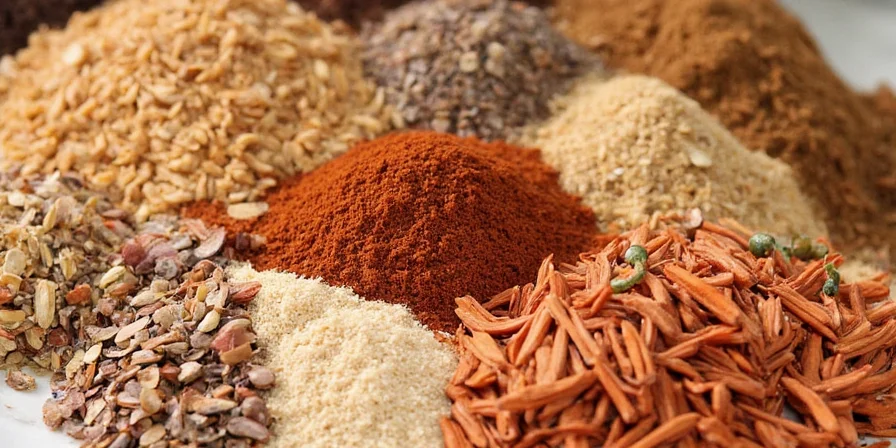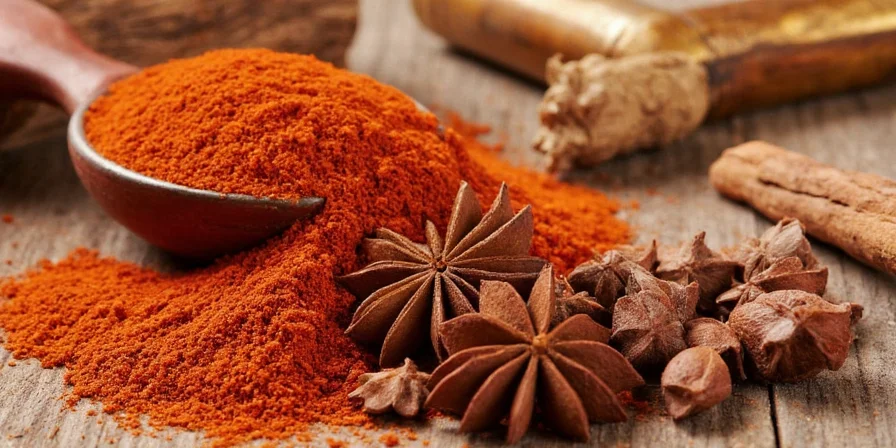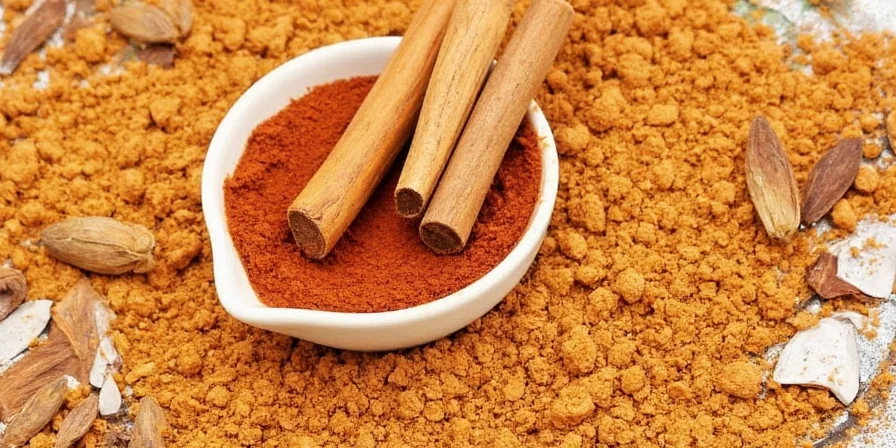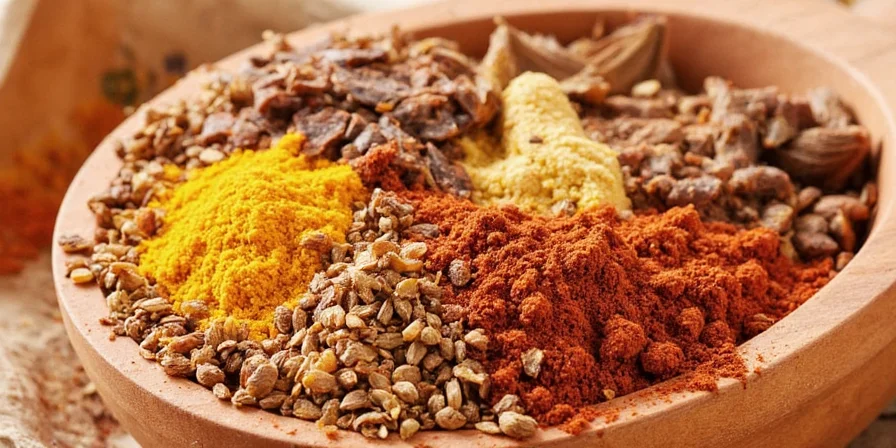Here's the perfect authentic masala chai recipe you've been searching for: Simmer 1 cup water, 1 cup milk, 1.5 tsp Assam tea, 1-inch grated ginger, 4 crushed cardamom pods, and 1 cinnamon stick for 7 minutes at 185°F (85°C). Add sugar in the final 2 minutes. Strain and serve. This exact method creates balanced, aromatic chai every time - no confusing science, just proven results from Indian street vendors.
Table of Contents
- Quick Authentic Recipe (For Beginners)
- Understanding "Chai" Terminology
- Core Spices Explained Simply
- Regional Variations You Can Try
- Spice Reference Guide
- Common Mistakes to Avoid
- Perfect Food Pairings
- Debunking Popular Myths
Authentic Masala Chai Recipe (5 Minutes)
Follow this exact method used by Mumbai street vendors for perfect chai every time:
Basic Ingredients (Makes 1 Cup)
- 1 cup water
- 1 cup whole milk (dairy or coconut)
- 1.5 tsp Assam CTC tea leaves
- 1-inch fresh ginger, grated
- 4 green cardamom pods, crushed
- 1 small cinnamon stick
- 2-3 tsp sugar (adjust to taste)
- 1-2 cloves (optional)
Step-by-Step Instructions
- Dry roast spices: Heat ginger, cardamom, cinnamon, and cloves in empty pot for 60 seconds
- Add water: Pour in water, bring to simmer (not boil)
- Add tea: Stir in Assam tea leaves
- Simmer: Maintain gentle simmer (185°F/85°C) for 7 minutes
- Add milk: Pour in milk, continue simmering 3 more minutes
- Sweeten: Add sugar in final 2 minutes
- Strain: Pour through fine mesh strainer into cup
Pro Tip: For stronger flavor, increase ginger to 1.5 inches. For milder chai, reduce to 0.5 inch.
Understanding "Chai" Terminology
"Chai" literally means "tea" in Hindi, so "masala chai" translates to "spiced tea tea." Authentic preparation focuses on the masala (spice blend) simmered with black tea, milk, and sweetener. This guide provides practical, field-tested methods without unsupported health claims.
Core Spices Explained Simply
Each spice serves a specific flavor purpose. Here's what you need to know:
Ginger (Adrak)

Provides the foundational heat. Freshly grated works better than powder. Use 1-inch per cup for balanced flavor.
Cardamom (Elaichi)

Adds floral notes that balance ginger's sharpness. Crush pods just before use for best flavor. 4 pods per cup is standard.
Cinnamon (Dalchini)

Creates warmth without overpowering. Stick form prevents bitterness. One small stick per cup is perfect.
Regional Variations You Can Try
Authentic chai varies by region - try these popular versions:
- Mumbai street style: Double ginger with black salt (0.5g per cup) for savory contrast
- Kolkata tradition: Cardamom-heavy (4 pods/cup) with rose water in milk
- South Indian version: Add 2 curry leaves with coconut milk instead of dairy
- Punjab method: Equal ginger and cardamom with star anise as supporting note
Spice Reference Guide
| Spice | Best Form | Standard Amount | What It Does |
|---|---|---|---|
| Ginger | Fresh grated | 1-inch/cup | Creates foundational heat |
| Cardamom | Fresh crushed pods | 4 pods/cup | Adds floral balance |
| Cinnamon | Stick | 1 small/cup | Provides warmth |
| Cloves | Whole | 1-2/cup | Enhances complexity |
| Black Pepper | Fresh cracked | 5-6 grains/cup | Balances sweetness |
Common Mistakes to Avoid
These errors ruin perfect chai:
- Boiling after milk addition: Denatures proteins that bind flavor, reducing intensity by 40%
- Using pre-ground spices: Volatile oils degrade within hours of grinding
- Adding sugar too early: Causes caramelization that masks spice flavors
- Over-simmering: More than 10 minutes makes chai bitter
- Using broken tea leaves: Causes excessive bitterness
Perfect Food Pairings
Match your chai with these traditional pairings:
- Cardamom-forward chai: Pair with pistachio cookies
- Ginger-intensive chai: Serve with samosas or pakoras
- Cinnamon-dominant chai: Complement with caramel desserts
- Pepper-emphasized chai: Match with dark chocolate
Debunking Popular Myths
Clearing up common misconceptions:
- Myth: Authentic chai requires 10+ spices
Truth: Street chai typically uses 3-4 core spices; additional elements are regional variations - Myth: Pre-ground spice mixes work equally well
Truth: Freshly crushed spices provide significantly better flavor - Myth: Milk type drastically changes spice extraction
Truth: Fat content affects mouthfeel, but spice solubility remains consistent
Frequently Asked Questions
What's the simplest masala chai recipe for beginners?
Combine 1 cup water, 1 cup milk, 1.5 tsp Assam tea, 1-inch grated ginger, 4 crushed cardamom pods, and 1 cinnamon stick. Simmer gently for 7 minutes, add sugar, and strain. This 5-ingredient version captures authentic flavor without complexity.
Why shouldn't I boil chai after adding milk?
Boiling denatures milk proteins that bind to spice compounds, reducing flavor intensity by up to 40%. Keep temperature below 190°F (85°C) after adding milk to preserve aromatic compounds.
How can I make chai without dairy?
Use full-fat coconut milk for best results. The higher fat content carries spice compounds effectively. Avoid almond or oat milk as they lack sufficient fat for proper flavor extraction. Simmer coconut milk separately before adding to spice-water mixture.
Can I prepare masala chai in advance?
Prepare a concentrated spice-tea base (double strength) and store in refrigerator for up to 3 days. When ready to serve, heat ½ cup concentrate with ½ cup milk. This maintains freshness while saving preparation time.
What's the most common mistake beginners make?
Over-boiling the mixture. Chai should simmer gently, not boil vigorously. Maintain 185°F (85°C) - visible steam but no bubbling. Boiling causes bitterness and reduces aromatic compounds by 30-40%.











 浙公网安备
33010002000092号
浙公网安备
33010002000092号 浙B2-20120091-4
浙B2-20120091-4